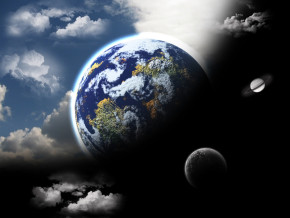How Much Life on Other Planets?

I used to have what I called “Star Trek Theology.” I figured that there may be all kinds of creatures or people on other planets and that God may well have given them a revelation of himself something like he did to us on earth.
Then I learned that physics are constant throughout the universe, and that the parameters for intelligent life are so incredibly fine tuned that the likelihood of life on another planet is extremely small. Almost to say: “We’re it.”
Along comes a new report from the National Academy of Sciences that Earth-size planets orbiting sun-like stars in a supposedly habitable environment are common. Eleven billion may exist in the Milky Way Galaxy alone. That would mean God might have a lot of revealing to do.
Though I’m not an astrophysicist, the astrophysicist I do know, Dr. Hugh Ross, would probably point out that this report only looks at the most rudimentary forms of inanimate life. And even then there is no demonstration that such life could form on its own. If our Creator set the process in motion, yes, but even that line of thinking is presumptuous.
The point is that the elements, gasses, gravitational forces, biological parameters, temperature parameters, etc. are so finely tuned and delicately balanced that intelligent life on any planet is just below miraculous (or maybe miraculous). See www.Reasons.org
Thus I can’t help but think that scientists are a bit too excited, or at least are overselling the life-on-other-planets idea. I’m not saying it’s impossible. But the greater body of data indicates that anything beyond cells and amoebas is increasingly unlikely the more complex the form becomes. It’s not worth holding one’s breath.
—
Photo credit: Rjirfvecz | StockFreeImages.com








if its possible that life exists in other planet, are they included in the clause “all have sinned”? The origin of sin of all men resulted from Adam’s sin. And since “all” means all men, I think God means we are “all” it. There’s nobody beside us.– just a thougth